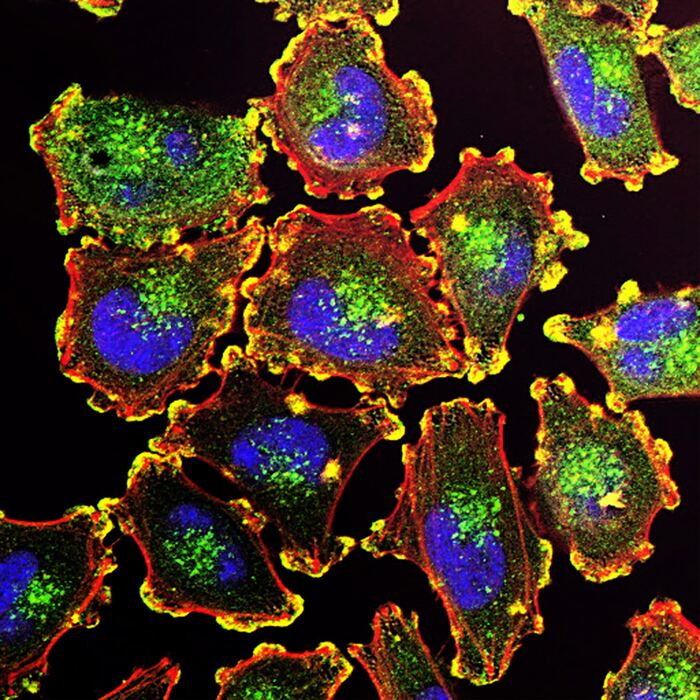The first nano-computer made of modified proteins is ready: for now it is able to direct cells by making them change position and orientation in space, but in the future it could make possible the development of new generation cell therapies for different diseases, such as diabetes, cancer, infections and nerve injuries. The result, published in the journal Science Advances, was obtained at the American State University of Pennsylvania and is a first step towards the ability to modify much more important behaviors of cells, such as the genes expressed and the effectiveness of immune ones against tumors.
Traditional approaches to cell therapies, such as those that aim to destroy cancer cells or regenerate damaged tissue, rely on the production or suppression of proteins that perform the desired task. The researchers led by Nikolay Dokholyan and Jiaxing Chen, on the other hand, chose a different path: "We modify proteins so that they act directly in the way we want," explains Dokholyan; "Our nano-computers respond directly to stimuli and produce the desired action."
To do this, the authors of the study integrated into the protein two sensors that respond to two different stimuli: light and a drug called rapamycin. The result depends on the order in which the cells receive these two signals: if rapamycin is detected first and then light, the cell will orient itself in space at a certain angle, while if the stimuli are received in reverse order the displacement will be different. According to Chen, this first test opens the door to the development of nano-computers based on much more complex proteins: "Theoretically, the more signals you incorporate into the nano-computer, the more results you can get thanks to the different combinations."
Ready the nano-computer made of proteins, directs the cells
2023-06-05T07:51:04.970Z
Highlights: The first nano-computer made of modified proteins is ready. For now it is able to direct cells by making them change position and orientation in space. In the future it could make possible the development of new generation cell therapies for different diseases, such as diabetes, cancer, infections and nerve injuries. The result, published in the journal Science Advances, was obtained at the American State University of Pennsylvania and is a first step towards the ability to modify much more important behaviors of cells, like the genes expressed and effectiveness of immune ones against tumors.

The first nano-computer made of modified proteins is ready: for now it is able to direct cells by making them change position and orientation in space, but in the future it could make possible the development of new generation cell therapies for different diseases (ANSA)





/cloudfront-eu-central-1.images.arcpublishing.com/prisa/MTOHBDDWPFDTPBEOJ4TEBMTRWA.jpg)
